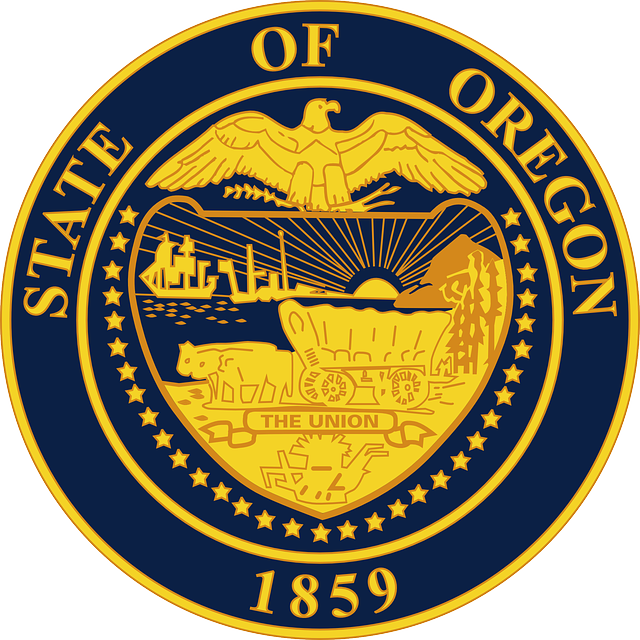The Oregon probate court oversees the complex distribution of deceased individuals' estates, ensuring fairness and adherence to state law. Navigating this process begins with filing a petition and essential documents, appointing a personal representative, and gathering assets. The court meticulously evaluates claims, pays debts, and distributes property according to the will or trust. Understanding these steps, along with the Oregon probate timeline (ranging from several months to over a year), is crucial for efficient estate management and compliance with probate proceedings. Clear documentation and beneficiary notification are key to expediting this time-sensitive process.
“Navigating the Oregon probate process can be intricate, but with a clear understanding of each step, you can ensure a smoother transition. This comprehensive guide breaks down the key phases, from the initial filing of a petition and documenting the estate to evaluating and distributing assets, managing debts and taxes, and finalizing the process within the Oregon probate timeline. Understanding the role of the Oregon probate court is crucial, as it facilitates the efficient administration of estates. By following these steps, you can gain insights into managing an Oregon estate effectively.”
- Understanding the Oregon Probate Court and Its Role
- Initial Steps: Filing Petition and Documenting the Estate
- Evaluating and Distributing Assets: A Detailed Look
- Handling Debts and Taxes in Oregon Probate Proceedings
- Finalizing the Oregon Estate Process: Timeframe and Considerations
Understanding the Oregon Probate Court and Its Role

The Oregon probate court plays a pivotal role in the state’s probate process, overseeing the administration and distribution of deceased individuals’ estates. This judicial body is responsible for ensuring that estate proceedings are conducted fairly and in accordance with Oregon law. Understanding the court’s functions and the overall Oregon probate timeline is essential for anyone navigating this complex legal process.
Probate proceedings in Oregon involve several key steps, from the filing of a petition to the eventual distribution of assets. The court’s role includes validating the will, if one exists, determining the validity of claims against the estate, and overseeing the appointment of an executor or personal representative to manage the estate’s affairs. By understanding these procedures, individuals can better navigate the Oregon estate process, ensuring that their wishes are respected while adhering to legal requirements.
Initial Steps: Filing Petition and Documenting the Estate

When navigating the Oregon probate process, the initial steps are crucial in setting the foundation for the entire procedure. The first step involves filing a petition with the probate court Oregon. This legal document initiates the Oregon probate timeline and outlines the purpose of the proceedings. Along with the petition, essential documents detailing the Oregon estate process must be submitted, such as wills, trust agreements, and financial records. Understanding probate Oregon requires comprehending these initial steps, as they ensure the court has jurisdiction and access to all relevant information regarding the estate.
These opening actions are vital in preparing for probate proceedings Oregon. The court will then appoint a personal representative (often a named executor in a will) to oversee the administration of the estate. This individual is responsible for collecting, securing, and managing the deceased’s assets, paying any debts and taxes, and ultimately distributing the remaining property according to the terms of the will or trust. By documenting the estate thoroughly, the process becomes more efficient, ensuring a smoother transition during the Oregon probate timeline.
Evaluating and Distributing Assets: A Detailed Look

In the Oregon probate process, evaluating and distributing assets is a crucial step that requires careful attention to detail. After the death of an individual, their estate, which includes all property, both real and personal, must be assessed and divided among the beneficiaries as per the deceased’s wishes or as mandated by state law in the absence of a will. This process involves multiple parties, including the personal representative (often a designated executor), beneficiaries, creditors, and potentially the probate court in Oregon.
The personal representative is responsible for gathering all assets, valuing them, and creating a detailed inventory. They must also identify and notify creditors with legitimate claims against the estate. Once this process is complete, the distribution of assets can commence. This includes paying off debts, satisfying tax obligations, and transferring property or its monetary equivalent to the beneficiaries according to the terms of the will or Oregon’s default rules for intestate estates. Understanding the probate timeline in Oregon and navigating these proceedings requires a thorough grasp of state laws and regulations, making it essential for all involved parties to have clear documentation and legal guidance throughout this critical phase.
Handling Debts and Taxes in Oregon Probate Proceedings

In Oregon probate proceedings, one of the primary responsibilities of the executor or personal representative is to handle debts and taxes associated with the deceased’s estate. This involves several crucial steps. Firstly, they must identify and gather all financial accounts, assets, and liabilities. The probate court in Oregon will then authorize the sale of assets if necessary to pay off any outstanding debts, including taxes. It’s important to understand the Oregon probate timeline, as these proceedings can take time, and tax deadlines should be respected to avoid penalties.
The executor needs to file an inventory of the estate with the probate court, detailing all assets and their current value. This helps in understanding the financial picture and facilitates the process of debt repayment. In terms of taxes, federal and state tax returns may need to be filed on behalf of the deceased, depending on the size and complexity of the estate. By following these steps and understanding the probate process in Oregon, individuals can ensure that debts and taxes are handled efficiently, adhering to the legal requirements of the state.
Finalizing the Oregon Estate Process: Timeframe and Considerations

Finalizing the Oregon Estate Process involves several key considerations and can take a significant amount of time. The probate court in Oregon oversees these proceedings, ensuring that all legal requirements are met. Understanding the probate process in Oregon is crucial for anyone navigating this complex procedure. The timeline for an Oregon estate process can vary greatly depending on the size and complexity of the estate, as well as the number of assets and beneficiaries involved.
In general, probate proceedings in Oregon can take anywhere from several months to over a year. During this time, court documents must be prepared and filed accurately, heirs or beneficiaries identified and notified, and any necessary appraisals completed. Additionally, potential disputes among parties may arise, requiring additional time for mediation or litigation. Remember that the probate court in Oregon is there to facilitate a fair and efficient resolution, so staying informed and compliant with legal requirements can help expedite the process.
